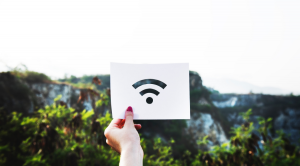Do banks refund scammed money? How to get your money back?
When you are scammed and lose money in your bank account, getting it back is not always easy. However, depending on the specific situation and your actions, you still have a chance to get your money back. The article below will help you understand the future of your scammed money, and provide the necessary steps to protect your financial interests.
Will the bank refund the scammed money?
1. When will the bank refund the money?
Bank error: The bank is responsible for refunding if the money is lost due to a security system error or your account is hacked (such as a hacker attacking the bank's database).
Detecting fraudulent transactions in a timely manner: If you detect a suspicious transaction and immediately report it to the bank, they can block the receiving account and refund you the money.
According to the law: The Law on High-Tech Crime Prevention stipulates that banks are responsible for cooperating in overcoming the consequences of fraudulent transactions.
2. When does the bank not refund?
Customer error:
You voluntarily provide account information, OTP code, or PIN code to someone else.
The transaction is made from a previously logged-in device.
Failure to report promptly:
You do not immediately notify the bank when you discover a fraudulent transaction.
How to get your money back?
1. Act immediately upon discovering a fraudulent transaction:
Contact the bank:
Call to report the fraudulent transaction.
Request to freeze the account.
Report the transaction:
Send a report to the bank, along with evidence of the transaction.
2. Report to the authorities:
Police: File a fraud complaint and provide evidence of the transaction.
Department of Information Security (Ministry of Information and Communications): Report on the agency's website or mailbox.
3. Monitor the progress:
Regularly contact the bank to know the progress of the investigation.
Support to provide additional information when necessary.
Tips to avoid being scammed:
Do not provide sensitive information (OTP, PIN, account) to anyone.
Use full security measures such as 2-step verification.
Regularly check transaction history and report any unusual transactions.
Refunds in case of fraud depend a lot on the situation and current laws. However, prevention is the best way to avoid unnecessary loss of money.










